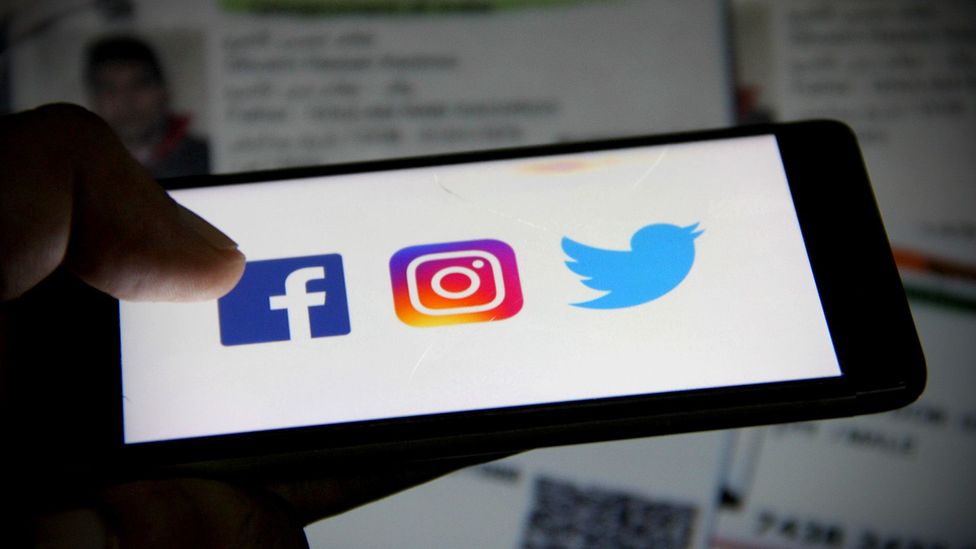How To Make Money With Domain_9 2018
Can you make money selling your data?
(Image credit:
Getty Images
)

Tech giants make billions from our data – why can't we do the same? Sam Harrison tries out companies which pay for personal information, with varying results.
C
Companies are selling our data and making billions doing so. So, why shouldn't we get in on the act?
In the wake of the Cambridge Analytica scandal, firms have scrambled to comply with the EU's General Data Protection Regulation, or GDPR, in Europe at least. But the damage is already done. Our personal data is out there, and we have lost control of it.
But what if there was a way to claw some of that control back – and make some money in the process?

Cambridge Analytica whistleblower Christopher Wylie. The firm allegedly used the data of 50 million Facebook users to try to influence the 2016 US election (Credit: Getty Images)
Moneyspinner?
New companies are emerging, claiming they can finally give us the chance to seize back some ownership of our personal information. By cutting out the middleman and offering more transparency – and a chance to profit – they say they want to give users the means to monitor how their own data is used in a way that tech giants do not.
I like the idea of selling my own data. If the promises are true, I will be able to control who uses it (and how). Plus, I'd be earning money from something that until now I'd been giving away for free. I decided to investigate: could my stats be a viable, untapped income?
I focus on companies that make it possible for me to earn money straight away. Many of the firms I found are just starting out, like Ocean Protocol, which launches to the public in early 2019 and will offer a "data exchange protocol to unlock data for artificial intelligence". Another is Datacoup, which isn't currently open to new users signing up. Permission.io will pay users in ASK tokens, the company's own cryptocurrency, to watch advertisements. But at the moment there is no way to convert these ASK into non-crypto assets. Since it wasn't possible to make money with this bunch yet, I decide to focus on three where I can.
Quiz master
One tried-and-true way of making money from your "data" is by filling out online surveys. Most of us take part in online quizzes for fun every now and then – why not answer questions about myself for money? One firm, CitizenMe, claims to offer "real-life value from your life online" by paying users to answer quizzes about themselves. I take a quiz called "Does your data have value?". I'm hoping it does – that's why I'm here.
Most of the people I mention this experiment to had a knee-jerk reaction against it – their instinct was that we need less of our data floating around the internet, not more. And although this quiz will gather a speck of information dust compared to the mountains of data Facebook has about me, handing over my information to a company like CitizenMe – deliberately, no less – seems like an unnecessary extra risk.
After answering 10 questions, CitizenMe sends £0.10 ($0.13) to my PayPal. At 1p doesn't feel like a terrible return – it only takes seconds to answer each question after all – but after I'm done, no new quizzes are available. At 10p, I've maxed out my earning potential for CitizenMe. Not the most promising start.
I move onto Datum, a company still in its early stages of development that advertises itself as a "blockchain data storage and monetisation" company.
Datum lets me sell them my location data for 1 DAT per month, which is worth about $0.01, according to their app. If I had the location data of thousands of people to sell, this process might be worthwhile, but $0.01 is not enough for me to consider it. At the time of writing, they do not have other opportunities to sell data available.

The more a social media platform knows about you, the better it can target advertising to you – and the more money it can make (Credit: Getty Images)
Playing the points game
Finally I try Wibson, a company that purchases your data in exchange for "Wibson points," which can be redeemed for rewards such as Spotify Premium accounts, Visa gift cards and Uber credits. This sounds more promising. Their app is still in alpha mode, which means it's still being tested (it's set to launch in October).
I allow access to my location data (+15 points), and connect my Facebook (+20 points), LinkedIn (+20), my device info (+25), and my Google accounts. According to the company, all of this data will be sold on to their partners, who will use it for things like targeting for marketing campaigns, market research, or innovation. Users can choose whether to supply anonymised data – such as geolocation – or something that discloses more, like a LinkedIn profile.
Once my information is connected to the app, I start selling. I give UC Berkeley my device information for 30 days, which will apparently be used to reduce traffic congestion, and receive 20 points. Then there's 12 points for my Google profile data from a global warming project conducted by Universidad Carlos III de Madrid. I get 11 in exchange for my geolocation data, again from UC Berkeley's traffic project.
I go through and accept every offer to sell my data, and end up with 423 points before running out of offers. This is exchangeable for one month of free Spotify or a $10 Visa gift card.
Overall, it doesn't look like I'm going to be quitting my day job any time soon or even count on a little extra at the end of the month, which is disappointing.

The more influence you have over others' purchasing decisions, the more your data is worth (Credit: Getty Images)
Not all data is equal
It's very early days for most of these companies, so it's too soon to tell if there are tangible profits to be made. But Rohit Talwar, a futurist and CEO of publishing house Fast Future, believes that we will one day be able to. "For the people who are willing to share their data, this is a fantastic way of rebalancing the equation, of getting some power back, because companies tend to take our data and use it without us knowing," Talwar says. But not all data will be treated the same, he warns.
"Those who have interesting lives, who are seen as influencers, who have big networks, whose data is significant because it might influence others' purchases will earn more than just the next person who eats at McDonald's. Not everyone's data is going to be equally valuable."
So maybe that's my real problem: my data just isn't so highly prized.
Economies of scale
The reason our data is so lucrative for big companies is the volumes they are able to scoop up – billions of users feed their algorithms every day. By knowing everything about this immense user base, firms like Google and Facebook can target advertisements to remarkably niche audiences – an incredibly lucrative exercise that has, among other things, upended the publishing industry. But me? I doubt I'll ever be able to make more than few dollars a month.
I expected to feel empowered by sharing my data myself and bypassing the big companies who usually profit from my information. A small part of me imagined this experiment as part side-gig, part crusade against the tech giants who control so much of the internet's information.
Instead, I felt vaguely uncomfortable with every piece of information I handed over. Wibson, Datum and CitizenMe have access to my location data so they knew when I was at home or at the corner shop, what I was posting publicly on social media, even what kind of phone I have. Even though Google, Facebook, and Apple have access to all this data – and more – the permission structure is buried deep in their terms and conditions. The transparency that these new companies are offering is a reminder of just how much our data is already being used.
Perhaps I wouldn't have cared if there was more money to be made from sharing my data myself. And as more of these companies emerge and the concept of individuals monetising their own data spreads, there might be. For now, I think I'll hold on to my day job.
--
To comment on this story or anything else you have seen on BBC Capital, please head over to our Facebook page or message us on Twitter .
If you liked this story, sign up for the weekly bbc.com features newsletter called "If You Only Read 6 Things This Week". A handpicked selection of stories from BBC Future, Culture, Capital and Travel, delivered to your inbox every Friday.
How To Make Money With Domain_9 2018
Source: https://www.bbc.com/worklife/article/20180921-can-you-make-money-selling-your-data
Posted by: thompsonandesch.blogspot.com

0 Response to "How To Make Money With Domain_9 2018"
Post a Comment